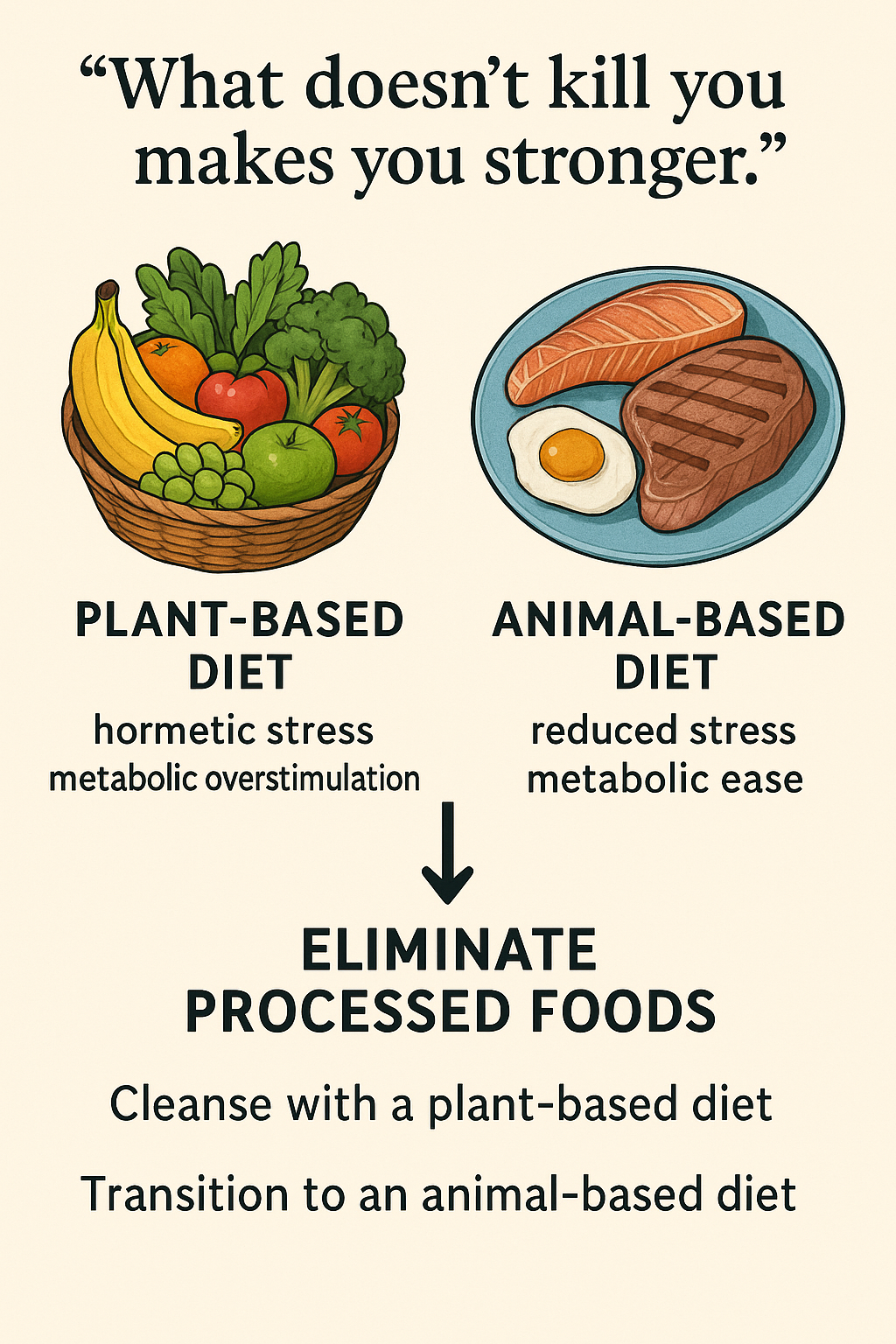You’ve probably heard the saying, “What doesn’t kill you makes you stronger.”

A whole-food, plant-based diet often results in better health outcomes compared to a processed Western diet. However, much of the benefit comes from eliminating the worst offenders—such as refined seed oils, added sugars, fried foods, and chemical additives—rather than from the plants themselves being inherently superior. When you consume a high amount of fruit, your body experiences a surge in glucose and insulin, which can be stimulating. Additionally, plant compounds act as hormetic stressors, nudging cellular defenses and immune cleanup mechanisms. The benefits derived from this diet are activated not by the food itself but by the human immune cells reacting to the anti-nutrients and toxins that plants produce in response to perceived threats from consumers, whether they be insects or humans. This response, which involves stress followed by a cleanup process, creates a notable contrast with a previous poor diet, where the real benefits may lie. In other words, the perceived health improvements often result from reduced harm, hormetic stress, and metabolic overstimulation rather than from the inherent superiority of the foods themselves.
On the other hand, animal-based whole foods that are rich in healthy fats can support longevity and reduce overall mortality by providing essential nutrients in their most bioavailable form while requiring a lower metabolic cost. Because animal foods are easier to digest and lack the anti-nutrients and chemical defenses found in plants, they offer dense nourishment without overstimulating the gut or immune system. By minimizing excess glucose and insulin responses, this dietary approach reduces metabolic stress, inflammation, and cellular damage over time, allowing the body to function more efficiently and maintain resilience, healthspan, and vitality throughout life.
So, what does all of this mean?
Today, we enjoy a level of dietary luxury that past generations did not have, thanks to technological advances in global shipping and refrigeration. We can eat not out of necessity but according to our preferences. This gives us the freedom to choose from various dietary pathways that previous generations could not—be it vegan, fruitarian, vegetarian, pescatarian, carnivore, and so on.
If you are tired of feeling unwell, there is a way to reset your body and shift it back to a state of ease rather than disease.
If you choose to pursue this, my advice is to eliminate processed foods entirely from your diet. Avoid all prepackaged foods with labels on the back. Instead, focus on purchasing single ingredients and whole foods, combining them in sensible ways that fit your lifestyle.
Plant-based foods can be an excellent starting point because of the responses they trigger in your body, signaling that it’s time for a cleanse. After a period that allows your immune cells to work their magic in response to the anti-nutrients from plant-based foods, you’ll likely want to transition to a diet that includes more nutrient-dense, animal-based foods. This approach will ultimately help your body ease into a lower metabolic state, which is essential for long-term health.
In summary, plant-based foods can ignite metabolic processes to help cleanse your body, while later incorporating animal-based foods will provide everything your body needs at a lower metabolic cost.
This is akin to burning the candle at both ends temporarily(high metabolism), followed by a trimming of the wick and a slow burn(low metabolism) until the wax runs out.